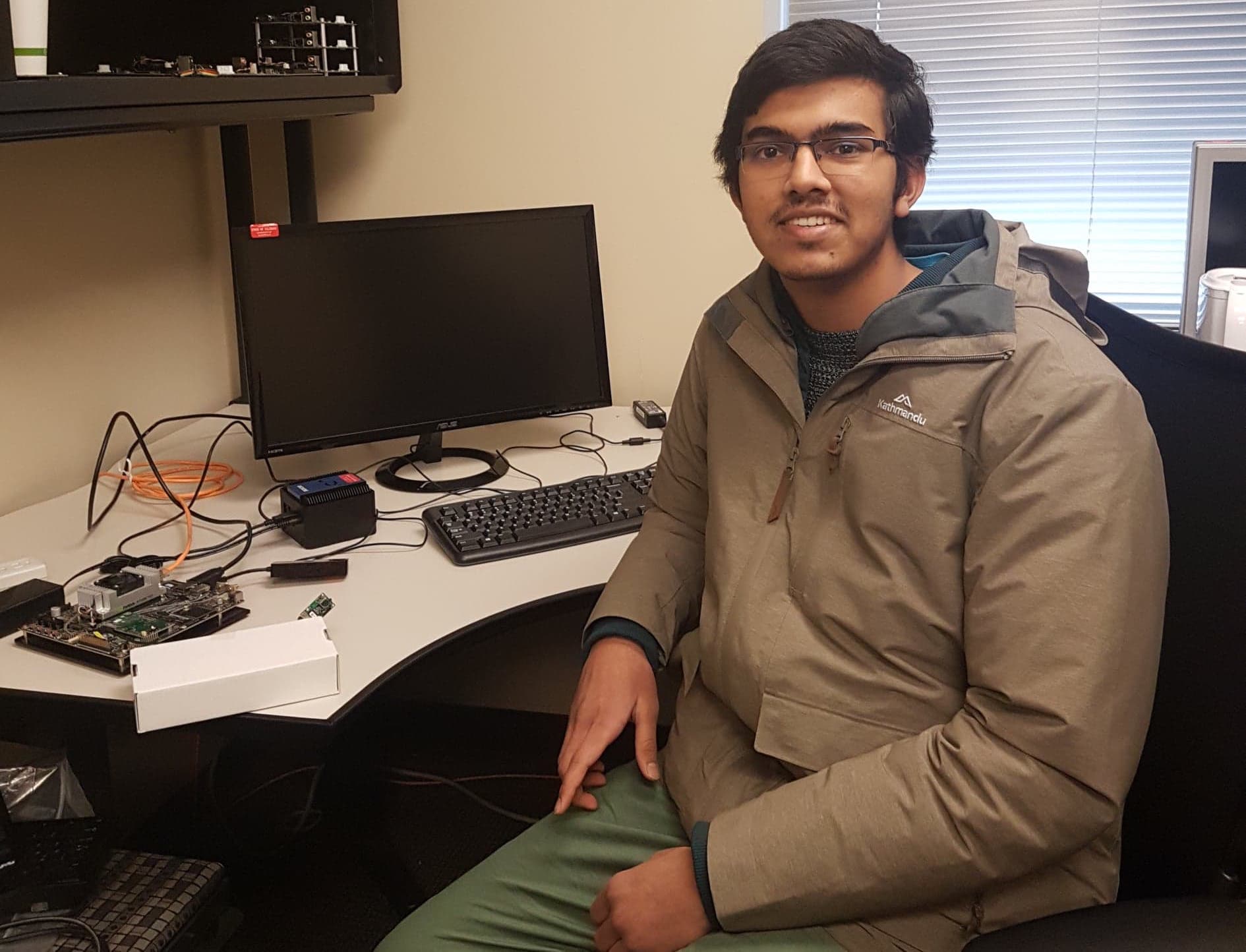QURPA 2020: Using machine learning to detect falls

UQ fourth-year undergraduate software engineering and mathematics student Aviral Kailash Jain reports on his internship in January and February 2020 at the US National Centre for Supercomputing Applications (NCSA). Aviral worked at NCSA, located at the University of Illinois at Urbana-Champaign, on building a machine learning system to help with human activity recognition–specifically, to detect falls. The internship was part of the RCC-sponsored Queensland Undergraduate Research Projects Abroad (QURPA) program.
By Aviral Kailash Jain
At NCSA I worked on running a machine learning model on a platform that can be used to make predictions in real-time. The model was developed to detect human falls from an input video. This is useful in old-age homes where falls can be quite dangerous and even life-threatening.
The goal of my project was to be able to run this model on a platform, such as an NVIDIA Jetson TX2 or a UP2 board.
Overall, I did manage to get my machine learning model to run on the platform, but there was still more work to be done for the model to produce its expected output.
Towards the end of my internship I was able to identify which section of the workflow needed to be corrected. Given more time, I would have worked more on that section.
This research experience gave me the chance to work on an interesting project among highly motivated and talented students in America. Through this, I learnt a lot more about the field of machine learning. This was largely also due to the freedom and support I had during this project from my supervisor who was always available to give me guidance and let me try different ideas.
The highlight of my trip was the chance to work within a research environment such as NCSA’s and being able to meet many different researchers and learn about their work and career pathways, and learn about the different types of research happening at NCSA.
I would highly recommend a QURPA internship to students at UQ, since you meet many different people and gain valuable experience in your field of study. This experience is especially valuable if you want to enter the field of research or if you want to apply for graduate school later in America, since you make many key connections while you are there.
Another highlight of my trip was travelling across America to some of its major cities, which was an amazing experience. Exploring New York’s Manhattan was fantastic.
I would like to thank everyone at RCC for giving me the chance to travel to America. I would especially like to thank RCC Director David Abramson and Jay Roloff, NCSA’s Associate Director of Program Management, for organising this program and making it possible for me to travel and work on such an interesting project.
I want to thank my NCSA supervisor, Senior Research Scientist Volodymyr Kindratenko, for his guidance and help during this project. I also want to thank NCSA postdoctoral researcher Shirui Luo for his invaluable help during this project.
Lastly, a tip to future QURPA students: to deal with Illinois’ cold winter weather, it is admittedly very manageable by simply wearing enough layers underneath a good jacket that can be purchased at any good store selling winter clothing.
